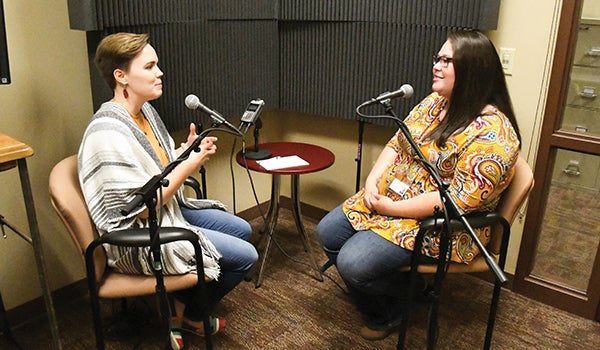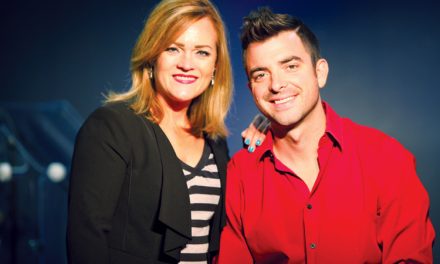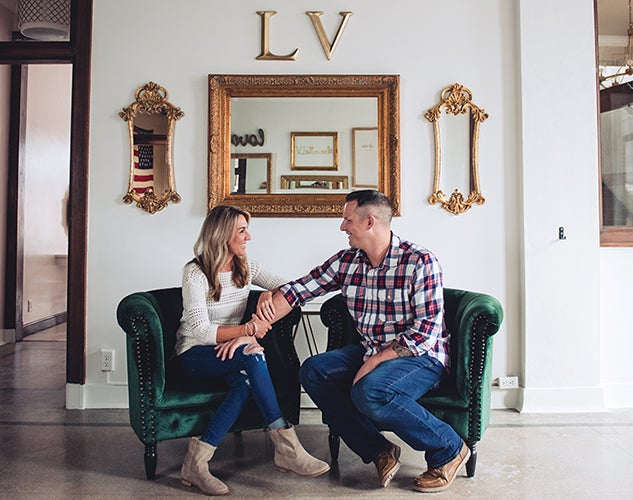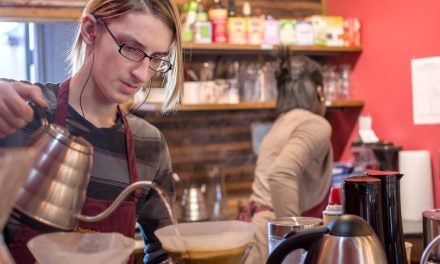Kyla Carneiro says this phrase at the start of each episode of “Yajmownen.” It is a podcast created by the Pokagon Band of Potawatomi Indians, of Michiana, that tells the stories of its citizens.
Kyla, who works for the Pokagon Band’s communications department, has been at the helm of the monthly podcast since it first set out in mid-2016 as its lead creator and editor, and its sole host.
In each episode, Kyla says the podcast shares Pokagon citizens “reconnecting with culture, reviving traditions and reclaiming their heritage,” with its audience, but that is just part of its larger impact, she says. It also helps people speak.
“Everyone has something to say, and there’s always something you can learn from listening to someone else’s stories,” Kyla says.
She says speaking publicly can be difficult for anyone, but especially for those in a community that has endured centuries of inequity, inequality and bigotry.
U.S. boarding schools stripped many Native Americans of their language and traditions, she says. Afterward, most things they shared publicly that reflected their traditions were either deemed criminal by white people or stolen by others.
That meant many Native Americans, including members of the Pokagon Band, preferred to stay quiet.
Yajmownen is meant to change that.
“It’s hard to speak,” Kyla says. “That’s why I think it’s incredible when people do, and it’s important to start that.”
Some episodes speak to the reclamation, revival and reconnection that Kyla speaks of in every episode in explicit ways. For example, one podcast spoke of the work Gary Morseau and Jason Wesaw do to return Pokagon seeds — considered by some Pokagon citizens to be their ancestors — to their original community from entities like universities and museums.
Other episodes speak to issues that Pokagon citizens may face. In early 2018, Kyla created miniature series within the podcast in coordination with the Pokagon Band’s campaign to fight opioid addiction. Kyla spoke to individual citizens about their fight and triumph over addiction.
But other episodes do not appear to outwardly touch on issues and activism.
One episode featured a citizen’s scuba diving excursion. Another features citizen Jordan Brewer, a University of Michigan baseball player, who was drafted by the Houston Astros.
However, Kyla says each episode has one thing in common, a theme that speaks to the podcast’s title: telling people’s stories.
Each podcast focuses on one, two, or sometimes three people’s personal journeys, whether in relation to a larger theme or not. Kyla seeks to draw them out.
“Podcasting is awesome, because audio storytelling is really powerful in connecting you to the story,” Kyla says. “You’re hearing that person’s actual voice, and you’re able to hear their tone. You can hear them laughing and crying.”
It is a style of podcasting she drew from “Death, Sex and Money,” an interview-style podcast hosted by Anna Sale.
It is also a style that listener Kristie Bussler appreciates.
“I think that there’s something special about listening to stories,” she says. “I’ve always been a big reader, but when I commuted to college, I started listening to audiobooks. There’s something special to have that voice behind it.”
Since first listening to “Yajmownen” through the Pokagon Band’s website, she says she became a devout listener, even going back to hear podcasts she had already played in hopes of gaining new perspectives.
Citizen Thomas Klemm enjoys the storytelling format, too.
“It’s a cool media platform where we control the narrative,” he says. “We control what goes out. I think that’s important as well because there’s no spin or anything on it, because it’s coming directly from the community.”
Thomas is not only a listener but a past contributor. When he heard about the podcast, he decided to share his story of heroin addiction.
Now, as a Ph.D. student at the University of Michigan, “Yajmownen” serves as a way for Thomas to connect to his home. He says he often learns new things about people he knows when they speak on the podcast.
Bussler feels the same way.
“It’s really cool to learn things about people that I didn’t even know about,” she says.
Kyla says that some guests surprise even her with their stories. Some are unexpected, and Kyla will change the course of the conversation to learn more.
She says she thinks audience members — whether Pokagon citizens, other Native Americans or anyone else — appreciate her interviewees opening up, too.
“I think it’s really intimate, because the kinds of conversations we’re having on here people aren’t normally having with a stranger,” she says. “[Audiences] get to have that conversation. They’re listening in. They get to be the fly on the wall.”
During those conversations, there are often laughs and sobs, sometimes both in the same episode. Feelings corresponding with those actions are more difficult to translate into words, Kyla says.
Citizen Bobby Lynn helps set each podcast’s mood to correspond with interviewees’ topics and feelings. His guitar strums set off an episode’s transitions, and his other musical works can be heard in each episode.
“He puts a lot of thought into every song,” Kyla says. “I’ll give him little clips so he can listen to what the person’s voice sounds like, and then he uses that to inspire the song.”
Kyla smiles thinking about one of Bobby’s most recent works: baseball-themed compositions for Jordan Brewer’s interview.
Together, Kyla, Bobby and script editor Paige Risser plan to continue “Yajmownen” so long as people have stories to share.
Kyla says podcasting is a way to live by a phrase that some members of the Pokagon band have been using to keep their culture growing: “Living traditionally in a modern world.”
“Storytelling, just speaking one-on-one together in a circle, is traditional for the Pokagon Band,” Kyla says.





